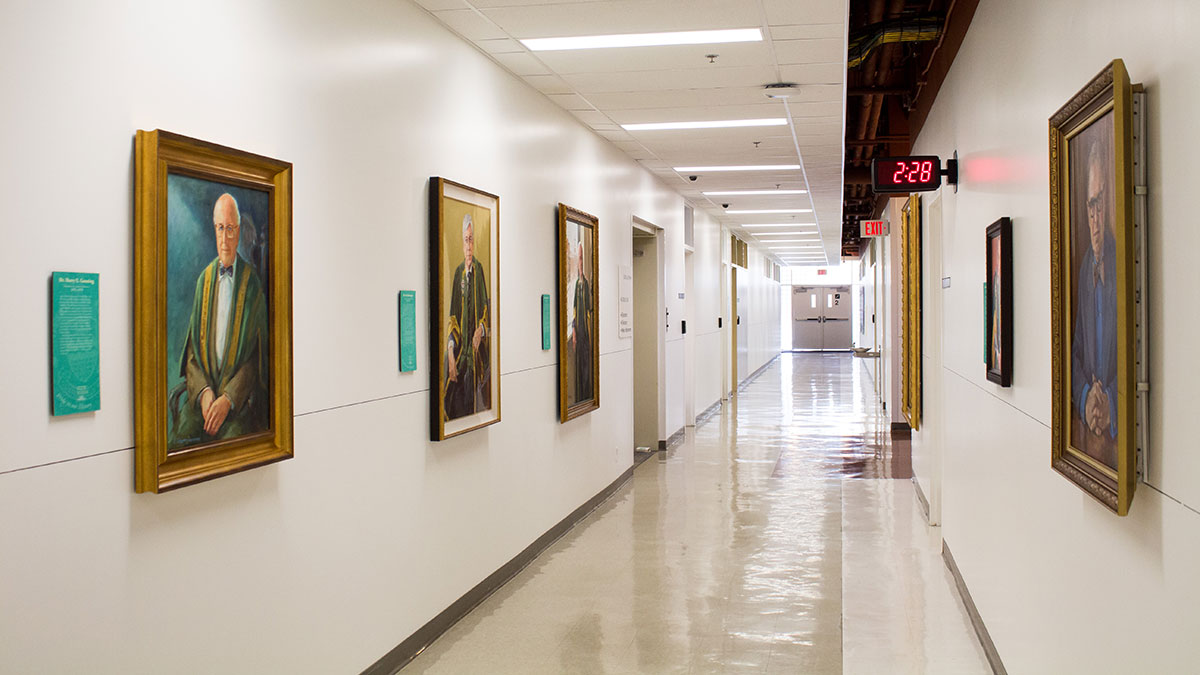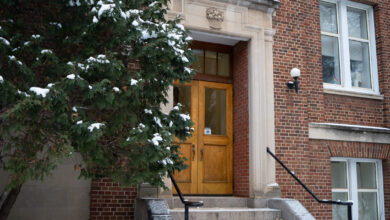 Christina Varvis
Christina Varvis‘University administrator’ carries many connotations, most of them negative. Administrators are often viewed as a necessary evil, having joined the “dark side” of the academic community, and most students don’t even know what administration does. I’m just figuring it all out for myself — I’m a grad student in educational policies and an administrative assistant in the Dean’s Office. As one of the many cogs in the wheel of the machine that powers the university, I want to tell you the truth as I see it about administration.
During class as an undergrad student, I would stare at the course syllabus and wonder not about the readings or essays I was being asked to write, but about the various policies I was being asked to follow. I imagined the university as it’s own world, where smaller parts moved in synchronized patterns, creating predictable rituals that have come to shape a distinct culture.
These patterns and rituals, processes and procedures became my reality when I got the job. I took minutes at committee meetings where faculty and administrators sat around a table negotiating curriculum, I crafted programs of study for degrees that aren’t even being offered yet, and I learned about university policy and the politics of the institution. Perhaps most importantly, I became acutely aware that I had entered a profession that was largely disliked by the university community.
Much of the skepticism toward administration can be attributed to the invisibility of administrative roles. One of the most difficult things to accept was that I too became invisible. I was separated from those that had, only a few years before, been my professors, mentors and friends because of some tired old narrative that portrays administrators as the enemy.
There are also mythologies that portray administrators as failed academics primarily concerned with promoting their own self-interests. Such views allow administration to become a scapegoat for larger problems within education. Despite mutual interests in education, there is a serious lack of trust and respect between faculty and administration, two very different groups of people that play very different roles.
Granted, not all administrators are good. Because higher-level administrators tend to make more money than faculty members, there is always going to be administrators who allow their positions of authority and their generous compensation to distract them from important educational issues that perhaps, tragically, once inspired them to their leadership roles in the first place. Such people become the faces of the university in the media.
But it’s important to note that there are about 2,500 administrators that run an institution large as the U of A, and we are often perceived to have more power than we actually have, especially those beneath the most well-known administrators. Those in charge do not always make decisions that I, or my colleagues agree with. They do not speak for all of us.
I think a major problem with administration is that we are indecisive toward how to best approach educational issues. As far back as the popularization of the theory movements of the 1960s, educational leaders have been divided on whether such methods or more ‘social science’ approaches better address educational issues. Those that study educational policy have a thousand ideas and theories about how an institution should be run, but are generally short on demonstrated action. Theoretically, university administration, which is supposed to manifest the virtues of academic practice, should be among the noblest professions in the world. But it’s not.
University administrators could do better and I believe there are some practical ways forward. One problem is that there is no universal ethic for administration, and since not all administrators are scholars, this field would benefit from an articulated mission statement that reflects ethical leadership practices that those of us who learn about educational policy are taught. An articulated purpose would hold administrators accountable for seeking truth and knowledge in all that they do and serve the university community.
There should also be more opportunities for administrative scholarship. The post-secondary self-study guidelines in Alberta are silent on any requirement for administrators to regularly report their scholarly activity. While many higher-level administrators have academic degrees, many do not specialize in educational issues, and some have only received management training. Administrators are not allocated funding in the university operating budget to attend conferences or workshops, publish in academic journals, or to pursue further accreditation. Is it so crazy to expect our administrators to also be scholars, when they work within a university?
University administration should be one of the noblest professions in the world, and it’s not. But it can be.




